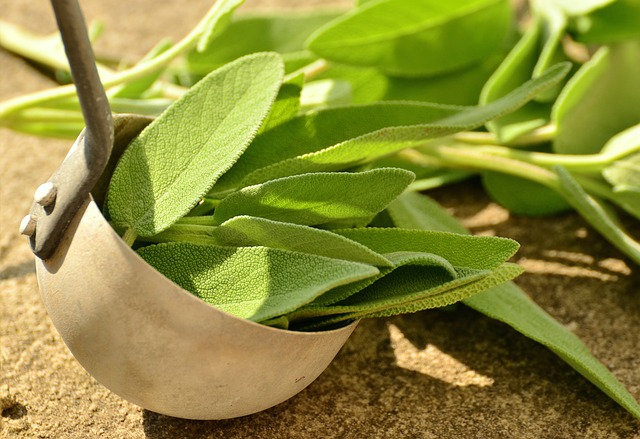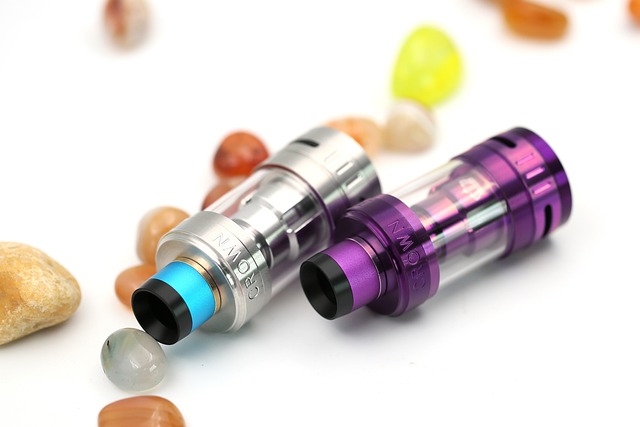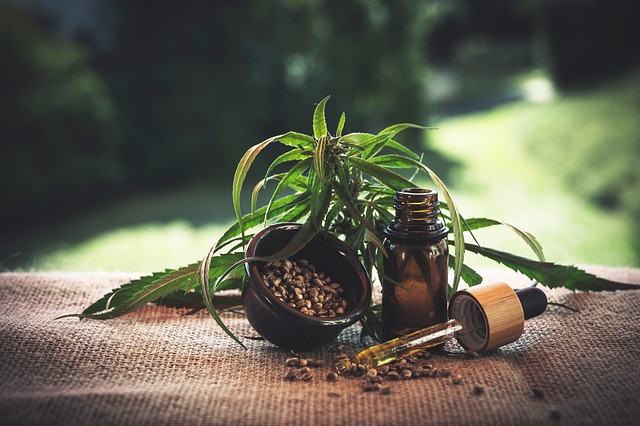Brain health is crucial to living a fulfilling life. It is the center of the nervous system, controlling our movements, thoughts, and behaviors. However, the brain is also vulnerable to many diseases, including Alzheimer’s, Parkinson’s, and dementia. Fortunately, nature provides us with a range of herbs that can improve brain health and reduce the risk of cognitive decline. In this article, we will explore ten of these herbs, explaining how they work and how to consume them.
Ginkgo Biloba
Ginkgo Biloba is a popular herb used for improving memory and concentration. It is known for its ability to increase blood flow to the brain, which enhances cognitive function. Ginkgo Biloba also contains antioxidants that protect brain cells from oxidative stress, which can cause cell damage and lead to cognitive decline.
To consume Ginkgo Biloba, you can take it as a supplement or drink it as a tea. The recommended dosage for Ginkgo Biloba supplements is 120-240 mg per day.
Ashwagandha
Ashwagandha is an adaptogenic herb that has been used in Ayurvedic medicine for centuries. It is known for its ability to reduce stress and anxiety, which can improve cognitive function. Ashwagandha also contains compounds that protect the brain from oxidative stress and improve nerve function.
To consume Ashwagandha, you can take it as a supplement or drink it as a tea. The recommended dosage for Ashwagandha supplements is 300-500 mg per day.
Bacopa Monnieri
Bacopa Monnieri is a herb commonly used in Ayurvedic medicine for improving memory and concentration. It contains compounds that improve communication between brain cells and increase blood flow to the brain. Bacopa Monnieri also has antioxidant properties that protect the brain from oxidative stress.
To consume Bacopa Monnieri, you can take it as a supplement or drink it as a tea. The recommended dosage for Bacopa Monnieri supplements is 300-500 mg per day.
Rosemary
Rosemary is a herb commonly used in cooking that has been shown to improve cognitive function. It contains compounds that improve blood flow to the brain and protect brain cells from damage. Rosemary also has antioxidant properties that protect the brain from oxidative stress.
To consume Rosemary, you can use it as a seasoning in cooking or drink it as a tea. The recommended dosage for Rosemary tea is 1-2 teaspoons of dried Rosemary per cup of water.
Turmeric
Turmeric is a spice commonly used in Indian cuisine that has been shown to improve cognitive function. It contains compounds that reduce inflammation in the brain and protect brain cells from damage. Turmeric also has antioxidant properties that protect the brain from oxidative stress.
To consume Turmeric, you can use it as a seasoning in cooking or take it as a supplement. The recommended dosage for Turmeric supplements is 500-2000 mg per day.
Sage
Sage is a herb commonly used in cooking that has been shown to improve cognitive function. It contains compounds that improve blood flow to the brain and protect brain cells from damage. Sage also has antioxidant properties that protect the brain from oxidative stress.
To consume Sage, you can use it as a seasoning in cooking or drink it as a tea. The recommended dosage for Sage tea is 1-2 teaspoons of dried Sage per cup of water.
Gotu Kola
Gotu Kola is a herb commonly used in Ayurvedic medicine for improving memory and concentration. It contains compounds that improve blood flow to the brain and protect brain cells from damage. Gotu Kola also has antioxidant properties that protect the brain from oxidative stress.
To consume Gotu Kola, you can take it as a supplement or drink it as a tea. The recommended dosage for Gotu Kola supplements is 500-1000 mg per day.
Rhodiola Rosea
Rhodiola Rosea is an adaptogenic herb that has been used for centuries to reduce stress and improve cognitive function. It contains compounds that improve blood flow to the brain and protect brain cells from damage. Rhodiola Rosea also has antioxidant properties that protect the brain from oxidative stress.
To consume Rhodiola Rosea, you can take it as a supplement. The recommended dosage for Rhodiola Rosea supplements is 200-600 mg per day.
Peppermint
Peppermint is a herb commonly used in cooking and aromatherapy that has been shown to improve cognitive function. It contains compounds that improve blood flow to the brain and enhance memory and concentration. Peppermint also has antioxidant properties that protect the brain from oxidative stress.
To consume Peppermint, you can use it as a seasoning in cooking or drink it as a tea. The recommended dosage for Peppermint tea is 1-2 teaspoons of dried Peppermint per cup of water.
Lion’s Mane Mushroom
Lion’s Mane Mushroom is a type of mushroom that has been shown to improve cognitive function. It contains compounds that stimulate the growth of nerve cells in the brain and protect brain cells from damage. Lion’s Mane Mushroom also has antioxidant properties that protect the brain from oxidative stress.
To consume Lion’s Mane Mushroom, you can take it as a supplement or cook it as a food. The recommended dosage for Lion’s Mane Mushroom supplements is 500-1000 mg per day.
There are many herbs that can improve brain health and reduce the risk of cognitive decline. These herbs work by improving blood flow to the brain, stimulating the growth of nerve cells, reducing inflammation, and protecting the brain from oxidative stress. To consume these herbs, you can take them as supplements, drink them as teas, or use them as seasonings in cooking. It is important to follow the recommended dosages and consult with a healthcare professional before adding any new supplements to your regimen. By incorporating these herbs into your diet and lifestyle, you can enhance your cognitive function and maintain a healthy brain.
Image by congerdesign from Pixabay
Brain
-

10 Easy Memory Boosters that You Must Try Today
In today’s fast-paced world, it’s easy to feel overwhelmed and forgetful. Memory is a crucial aspect of our lives, and it’s essential to keep it sharp and healthy. Natural remedies can great memory boosters without relying on prescription medications or synthetic supplements. In this article, we’ll discuss some of the best memory boosters to improve…
-

Eliminate Brain Fog With These Powerful Herbal And Kitchen Remedies
-

Why is Vaping Bad for your Brain health and How to Minimize the Negatives?
-

How Preserve Brain Health When You Use Marijuana?
-

How to Protect Your Brain Health from the damaging effects of Alcohol?
-

Exercise Improves Your Brain Health
-

How Tobacco Impacts on Brain Health and What can You Do About It?









Leave a Reply